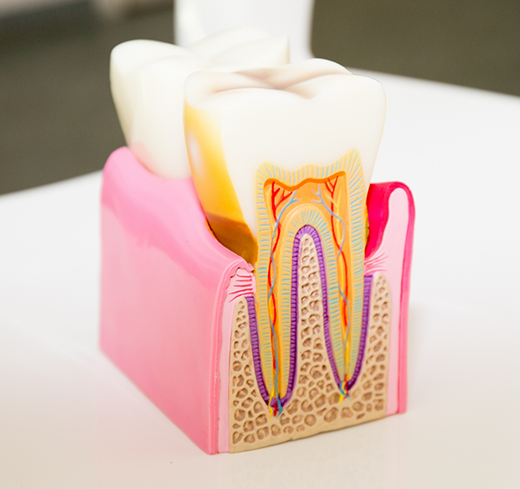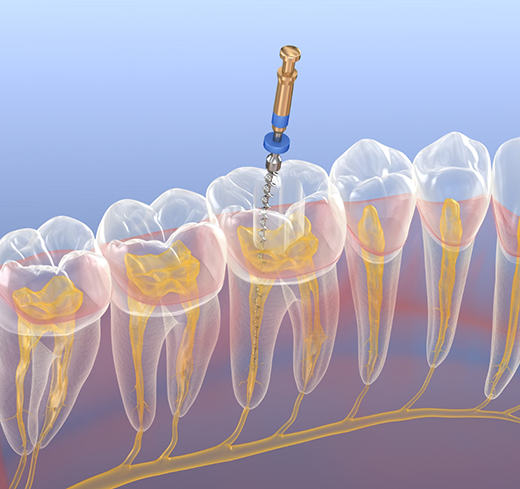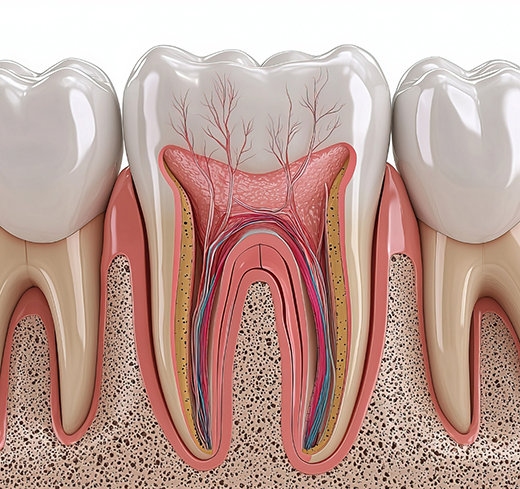Root Canal Treatment Georgetown
Erasing Toothaches One Root Canal at a Time
Painful and persistent toothaches can impact your work, sleep, and daily life. When left untreated, they can even put your natural smile in harm’s way by putting you at a higher risk of experiencing tooth loss. Our team at 1460 Dental Studio of Georgetown is happy to help address your toothache with root canal treatment to preserve the natural integrity of your smile for years to come. Call us today to schedule a same-day examination to learn whether this treatment is right for you.
Why Choose 1460 Dental Studio of Georgetown for Root Canal Treatment?
- CEREC Same-Day Dental Crowns
- Experienced & Gentle Dentist
- Same-Day Emergency Appointments
Why Should I Choose Root Canal Treatment?

That nagging toothache isn't just an annoyance - it could be a sign of a serious infection. Root canal therapy can alleviate your pain, restore your tooth's health, and help you avoid extraction down the road. With modern techniques, the procedure is more comfortable than ever before, so you can get back to living pain-free.
What Happens During a Root Canal?

- Diagnostics & Preparation – Your dentist will begin with a comprehensive examination of your tooth and X-rays to identify the cause of your dental discomfort. If an infection is present, they'll assess its severity to determine if a root canal is the appropriate treatment option. If root canal therapy is necessary, your dentist will ensure the treatment area is completely numb, including the nerves. Before starting the procedure, they'll discuss various sedation options with you to ensure your comfort throughout the treatment.
- Removing Decay & Infected Pulp – Once you're fully numbed and comfortable, your dentist will begin the process of removing decayed or infected material. They'll start from the outermost layer of enamel and work their way towards the inner pulp. After removing the infected pulp, the canals will be thoroughly cleaned and flushed with a specialized disinfectant to eliminate any remaining infection.
- Filling & Sealing – After cleaning and disinfecting your tooth, your dentist will fill the inner cavity with a rubbery substance called "gutta-percha". This inert material provides support to the tooth and replaces the extracted pulp. Following this, your dentist will determine whether to restore the tooth with a filling or a dental crown. This decision is based on the extent of decay and the amount of healthy enamel remaining on the tooth.
Benefits of Root Canal Treatment

- Instant Pain Relief – With root canal therapy, you can say goodbye to that unbearable toothache and hello to a pain-free smile.
- Stop Infection in Its Tracks – Preserve your oral and overall health, and prevent the spread of infection to other parts of your mouth and body.
- Save Your Natural Tooth – Eliminate the need for extraction and other more complex procedures down the line.
Root Canal Treatment Frequently Asked Questions
Why might I need root canal treatment?
Root canal therapy becomes necessary when tooth decay or trauma exposes the inner pulp to infection.
Signs of infection can include:
- Toothache
- Swollen gums
- Sensitivity
A root canal can relieve pain and preserve the structural integrity of your natural teeth, as well as prevent further complications.
Does root canal treatment hurt?
Not at all! Root canal therapy actually relieves pain caused by infection. With modern techniques and local anesthesia, the procedure is no less comfortable than getting a filling. We also offer sedation options for added relaxation.
Can root canal treatment fail?
While most root canals are successful, failure can occur if any bacteria remain. In such cases, we will perform a retreatment to ensure all infection is eliminated.
Do I always need a dental crown after root canal treatment?
In general, a crown is the best way to protect your tooth after a root canal. However, every case is different, so based on your unique situation, your dentist may recommend an alternative restoration, like a filling, inlay, or onlay.
Is a root canal covered by insurance?
Most dental insurance plans provide at least partial coverage for root canal therapy. Check with your provider for specifics about your plan's benefits.

 (512)
763-5774
(512)
763-5774 2951 FM1460 #101
2951 FM1460 #101